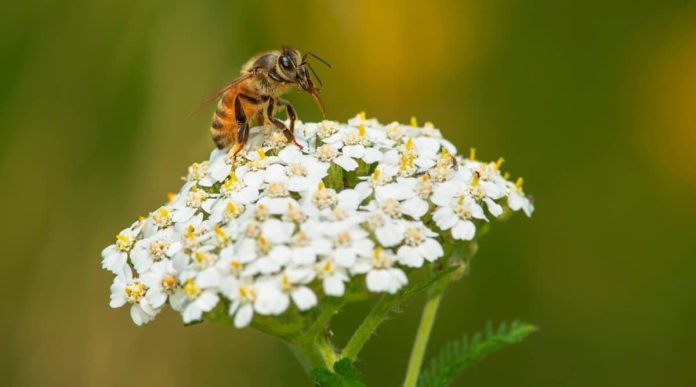Our fruits and vegetables are in jeopardy because the honeybee and other pollinators are disappearing, worldwide. Hand-pollinating our vegetable gardens just isn’t the same as honeybees and pollinators such as hummingbirds, bats, butterflies, and moths.
About 75% of world food crops and 90% of wild plants depend on pollinators. Because of pesticide use, pollinators are disappearing which greatly impacts our food supply.
Morgan Freeman
Morgan Freeman has seen how serious this is and has converted his farm to a bee haven. He has 26 hives and has planted vegetation to feed them. Freeman says, “We do not realize, I think, that they are the foundation of growth on the planet, the vegetation.”
So, what can we do for honeybees and other beneficial insects? Eliminate pesticide use. Make your own sprays with insecticidal soap, vinegar and/or oils. Learn companion planting so the beneficial insects are attracted to your garden. Leave bare spots on the ground so bees have a place to raise their young. Grow plants specifically for pollinators.
Plants for pollinators
Herbs that attract butterflies
- Chives
- Thyme
- Marjoram
- Catmint
- Mint
- Chives
- Yarrow
- Parsley
Herbs that attract honeybees
Bees prefer single-petaled flowers as they make it easier to get to sweet nectar.
- Basil
- Lemon balm
- Lavender
- Anise hyssop
- Hyssop
- Borage
- Germander
- Sage
- Savory
- Chamomile
- Rosemary
- Dill
- Betony
- Lamb’s ears
- Thyme
- Dandelion: this is their first food after winter
Herbs that attract hummingbirds
Hummingbirds are pollinators! Tubular blossoms are their favorite.
- Lavender
- Pineapple sage
- Hyssop
- Mint
- Rosemary
- Catnip
- Comfrey
- Mallow
- Globe Thistle
It’s a good idea to keep a shallow bowl of water in the garden for the honeybees and other beneficial insects.
Pesticides: the main culprit
It is estimated that at least 1/3 of all honeybee colonies have disappeared from the United States. Pesticides may not be the only problem for the pollinators but the neonicotinoids are found in most common, household garden sprays. These remain in the soil for years after their use and affect honeybees in such a way that they can’t find their way back to the hive. Pollinators also provide food for birds and other wildlife.
By just making a few changes, we can provide a climate for honeybees and other beneficial insects to thrive again. This ensures our fruits and vegetables grow strong and endure for our future.








